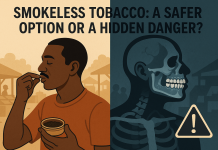If you are a morning coffee kind of person, then the World Health Organization (WHO) has got some good news for you.
The WHO International Agency for Research on Cancer’s (IARC) Monographs programme after evaluating the potential carcinogenicity of drinking coffee, maté and very hot beverages, concluded that there was no adequate evidence of a carcinogenic effect of drinking coffee or maté. Although, limited evidence showed that drinking very hot beverages could probably cause it.
Drinking of coffee has always been a controversial issue,as it was formerly classified by the IARC as “possibly carcinogenic” to humans, putting it in the same group as engine exhaust and chloroform. Now, based on a larger, updated body of research including over 1,000 studies in animals and people, there is apparently “inadequate evidence” to suggest any link between coffee and cancer.
Experts convened by the Lyon-based IARC concluded that there was no conclusive evidence to suggest coffee might cause cancer, according to a letter published in the Lancet Oncology.
I’m not really sure why coffee was in a higher category in the first place,” said Owen Yang, an epidemiologist at Oxford University who has previously studied the possible link between coffee and cancer. He was not part of the IARC expert group. “The best evidence available suggests that coffee does not raise the cancer risk, he said.
But drinking very hot beverages, according to limited evidence,might cause it.
Dana Loomis, deputy head of the IARC program that classifies carcinogens, said they began to look into a possible link after seeing unusually high rates of esophageal cancer in countries where drinking very hot beverages is common. He said that even at temperatures below 60 degrees Celsius (140 Fahrenheit), hot beverages can scald the skin, and that consuming drinks at even higher temperatures could be harmful.
Loomis said very hot beverages might cause a “thermal injury” in the throat that could eventually promote the growth of tumors, but that evidence was limited. He said there wasn’t enough evidence to suggest if eating very hot food might also be risky.
Experts have said that instead of just focusing on the leading causes of cancer, people should make other important changes like quitting smoking and reducing alcohol intake.









